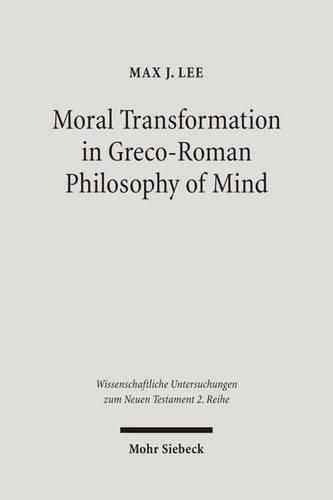Readings Newsletter
Become a Readings Member to make your shopping experience even easier.
Sign in or sign up for free!
You’re not far away from qualifying for FREE standard shipping within Australia
You’ve qualified for FREE standard shipping within Australia
The cart is loading…






Max J. Lee provides a synoptic picture of the moral traditions - especially those of Platonism and Stoicism - which shaped the intellectual and cultural environment of Greco-Roman antiquity. He describes each philosophical school’s respective teachings on diverse moral topoi such as emotional control, ethical action and habit, character formation, training, mentorship, and deity. He then organizes each school’s tenets into systemic models of moral transformation. For Platonism, the author analyzes the works of Plato, Plutarch, Alcinous and Galen; and for Stoicism, Zeno, Chrysippus, Musonius Rufus, Seneca, and Epictetus, among others. He also constructs a taxonomy of six interaction types to gauge how rival religio-philosophical sects, including Diaspora Judaism and Pauline Christianity, appropriated moral traditions from their Greco-Roman environment to articulate their own system of ethics.
$9.00 standard shipping within Australia
FREE standard shipping within Australia for orders over $100.00
Express & International shipping calculated at checkout
Max J. Lee provides a synoptic picture of the moral traditions - especially those of Platonism and Stoicism - which shaped the intellectual and cultural environment of Greco-Roman antiquity. He describes each philosophical school’s respective teachings on diverse moral topoi such as emotional control, ethical action and habit, character formation, training, mentorship, and deity. He then organizes each school’s tenets into systemic models of moral transformation. For Platonism, the author analyzes the works of Plato, Plutarch, Alcinous and Galen; and for Stoicism, Zeno, Chrysippus, Musonius Rufus, Seneca, and Epictetus, among others. He also constructs a taxonomy of six interaction types to gauge how rival religio-philosophical sects, including Diaspora Judaism and Pauline Christianity, appropriated moral traditions from their Greco-Roman environment to articulate their own system of ethics.